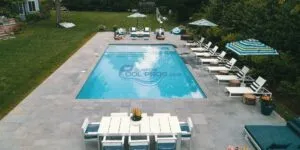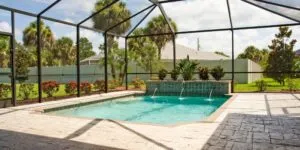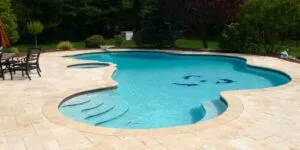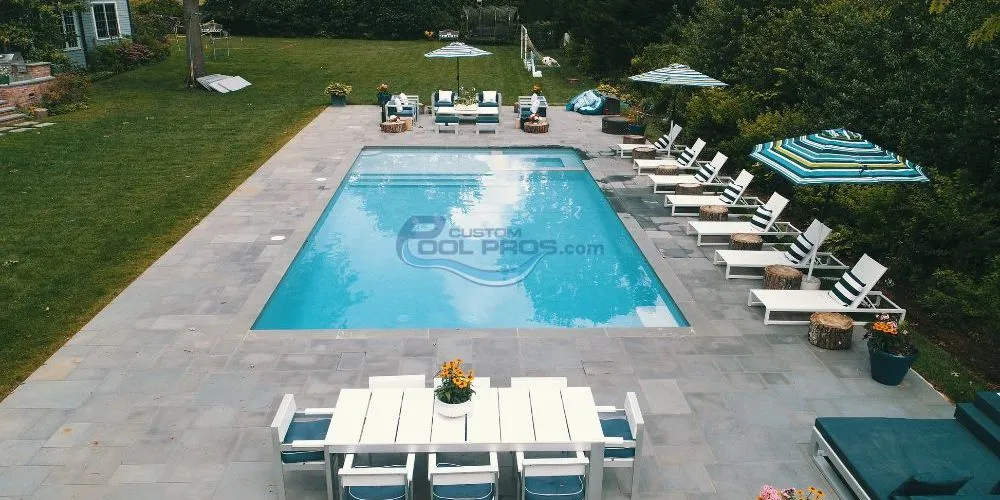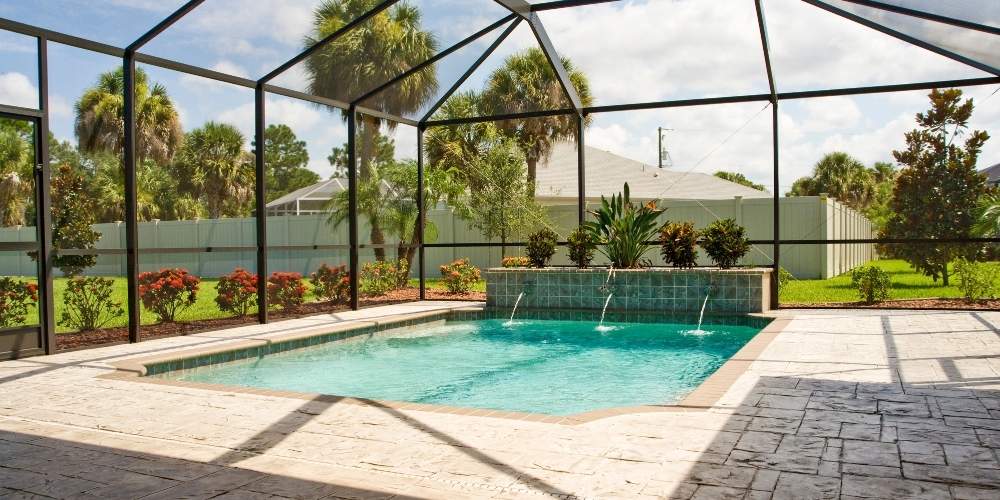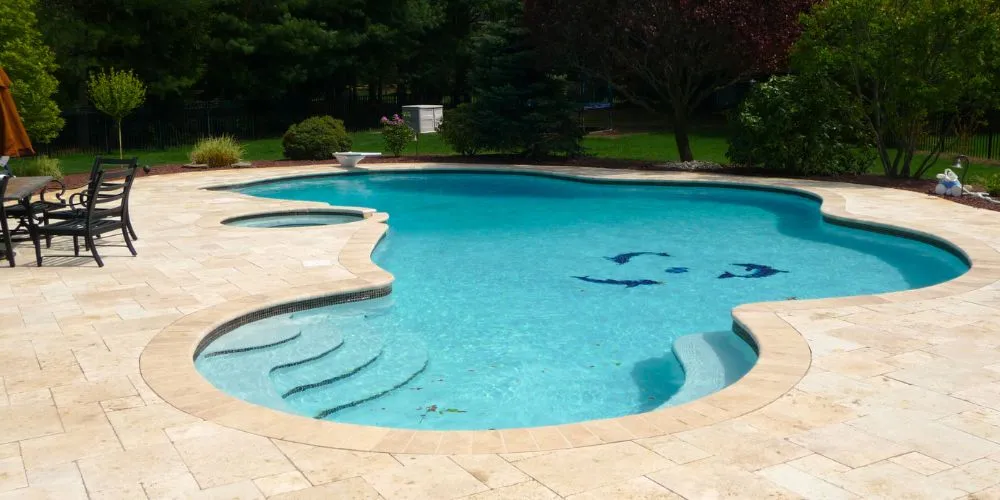Winterizing your pool with winterizing pool chemicals is critical to maintaining its longevity and ensuring that the reopening in spring goes as smoothly as possible. It involves preparing the pool with an advanced pool closing pool for winter chemicals to protect against algae, staining, and freezing damage.
This article will detail the steps in preparing your pool, the types of chemicals you need, and the order in which those chemicals should be added. Following these tips can protect your pool during the cold months.
How To Prepare Your Pool For Closing In Winter
Preparing the pool for the close of the winter season will keep it in excellent condition for the next year and also save one from much hassle when reopening in spring. First, clean your pool: remove all debris from the top, scrub the walls and floor, and vacuum the pool. Dirt accumulation can eventually cause algae to build up during the off-season. For instance, dealing with black algae in the pool can become a significant issue if the pool isn’t thoroughly cleaned.
Test the water for pH, alkalinity, and calcium hardness and balance to the recommended levels to prevent scaling, corrosion, and imbalances during winter.
Drain the water in your pool to the recommended level for your pool type, generally below the skimmer or tile line in inground pools. Check your manufacturer’s recommendations. Pressure test all equipment and then clean and store all accessories like ladders, skimmer baskets, and pool toys so they are not subject to freezing temperatures.
Drain all the equipment, including the pump, filter, and heater, to avoid freeze-related problems in the plumbing. Utilize an air compressor to blow the water out of the plumbing lines before sealing them with winter plugs to prevent freezing and cracking.
Finally, place a winter cover on the pool that is tightly secured without sagging. It protects the water and keeps it free of debris. These preparatory measures create just the right conditions for your pool to brave the winter with the assurance that it will be smoothly reopened in spring.
What Pool Closing Chemicals Do We Need?
The correct pool closing kits and chemicals protect your pool through winter. The chemical treatment prevents algae growth like green algae which causes green pool water, maintains clarity in the water, and protects the pool from stains and scale building up. Here are the primary and essential chemicals you would be requiring:
- Winter Algaecide: Algae do not grow during colder months, so using a winter algaecide is paramount. It is specially formulated to remain effective over a prolonged period, inhibiting algae growth.
- Pool Shock: A heavy pool shock effectively cleans bacteria, organic contaminants, and microorganisms. Thus, pool shock helps keep the water clean and hygienic during winter.
- Enzymes: Adding enzymes to the pool breaks down organic matter, such as oils, lotions, and potential winter debris, reducing cloudy water and foul odors in the spring.
- Stain and Scale Prevention Chemicals: These chemicals could help prevent minerals from causing scaling or staining on your pool surfaces and equipment during those colder months.
Types Of Pool Closing Chemicals
Winter Pool Algaecides
Winter pool algaecides are designed to provide long-lasting protection against algae growth during inactivity. They work effectively even in cold conditions, keeping your pool free from unsightly algae blooms when spring arrives. Applying algaecide before cover-up builds a barrier that keeps the spores of algae dormant and maintains water clarity through winter.
Winterize Pool Shock
Treating your pool with a shock treatment during winterization kills the bacteria, organic impurities, and residual chlorine imbalances. Pool shock oxidizes impurities so the water stays as clean as possible during inactivity. Put in either chlorine or non-chlorine shock- whatever is needed for your pool days in advance for the best results.
Also Read: How to Use A Winterizing Pool Kit?
Enzymes For Winter Pool Closing
Enzymes digest organic matter, which includes oils, lotions, and dirt that would have been left in the pool over the winter. These organic compounds prevent cloudiness in the water, foul odors, and the formation of scum. Enzymes added during closing will ensure a cleaner surface when reopening and less maintenance time come spring.
Stain & Scale Chemicals
Stain and scale prevention chemicals fight mineral deposits and subgroup metal stains caused by hard water or residual metals. They usually avoid scaling on the pool surfaces and equipment, keeping your pool aesthetically and functionally proper throughout. Apply them during closing to maintain smooth, no-stain surfaces all winter long.
In What Order Do You Add Pool Closing Chemicals?
Adding the chemicals to close the pool in the correct order will maximize their effectiveness and protect your pool through winter. Here’s a step-by-step process you can follow:
- Balance the Water Chemistry: Ensure, before adding any closing chemical, that your pool’s pH (7.4 to 7.6), alkalinity (80–120 ppm), and calcium hardness level (200–400 ppm) are balanced. Proper water balance protects from scaling, corrosion, and other efficiencies in the use of chemicals.
- Add Stain & Scale Chemicals: Add stain and scale prevention chemicals. These products can prevent mineral buildup and staining on your pool’s surfaces and equipment during winter. Let them circulate for several hours.
- Shock the Pool: Apply either chlorine or non-chlorine shock to the pool to shock it. It will kill bacteria and organic contaminants. Let the pump run for 6–8 hours so the shock is well circulated before proceeding to the next steps.
- Add Winter Algaecide: If the shock has adequately circulated, add a winter algaecide designed to prevent algae growth throughout the colder winter months. It is each pool owner’s protection against unclear and unclean water.
FAQs:
Will I need to add more chemicals in the winter?
If the pool is closed correctly and has appropriate chemical levels, no other chemicals need to be added. In hot states, however, some checking is done to maintain a balance.
Do I need to shock my pool before closing?
Shocking your pool before closing will help kill bacteria and organic contaminants in the water, keeping it clean through winter. Apply pool shock a few days before adding other closing chemicals.
Should you put chlorine in the pool when closing?
Yes, chlorine should be added to the water to keep it clean and sanitary during winter. You can shock the water or drop some chlorine pills in before closing. At the same time, avoid over-chlorination, which might damage the liner and equipment.
Properly closing your pool for winter protects it from damage and assures an easy reopening in the spring. The right chemicals will also help you achieve clean, clear water without costly repairs.
Contact Custom Pool Pros for more tips and all your swimming pool needs.




